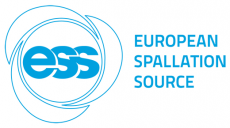European Spallation Source (ESS)
26 April 2021
Modified: 07 May 2025
Reading time: 2 minute(s)
 One of the largest ongoing research infrastructure investments of the EU.
One of the largest ongoing research infrastructure investments of the EU.
Once completed, the high-energy particle accelerator-based neutron source will be the world’s largest equipment of this kind.
The project is 70% complete (October 2020); it will be partially operational in 2023 and will reach full capacity in 2028.
| Short name | ESS |
| Name | European Spallation Source |
| Official website | https://europeanspallationsource.se |
| Year of foundation | 2014 |
| ESFRI project/landmark | landmark |
| Headquarters | Lund, Sweden |
| Number of member countries | 13 |
| Participating countries | Czech Republic, Denmark, Estonia, UK, France, Poland, Hungary, Germany, Norway, Italy, Spain, Sweden, Switzerland |
| Hungary’s accession | 2014 |
| Partner institutions in Hungary | Institute for Nuclear Research (ATOMKI) Centre for Energy Research Wigner Research Centre for Physics |
| Public administration representative |
Dr. László Nemes National Research, Development and Innovation Office Department for Strategy and Monitoring 1077 Budapest, Kéthly Anna tér 1. E-mail: laszlo.nemes@nkfih.gov.hu |
| Professional representative |
Ákos Horváth director general Centre for Energy Research |
| Membership payments | 2019: EUR 1,320,569 (≈ HUF 462.2 million) 2020: EUR 2,686,804 (≈ HUF 967.2 million) 2021: EUR 3 000 000 (≈ HUF 1 069,8 million) 2022: EUR 3 000 000 (≈ HUF 1 140 million) 2023: EUR 3 500 000 (≈ HUF 1 400 million) |
Benefits of the membership for Hungary
- Future access by Hungarian researchers to internationally competitive and costly large research equipment.
- The membership fee currently covers building costs as well, 70% of which is returned to domestic suppliers in the form of supply orders.
- 3 Hungarian research institutes (ATOMKI, Centre for Energy Research, Wigner Research Centre for Physics) and several innovative companies are involved.
- Moral and financial benefits for the domestic R&D sector.
- Industrial/business-based supply exceeding the membership fee many times.
- Economic boost for Hungary (capacity expansion, job creation).
Updated: 07 May 2025






